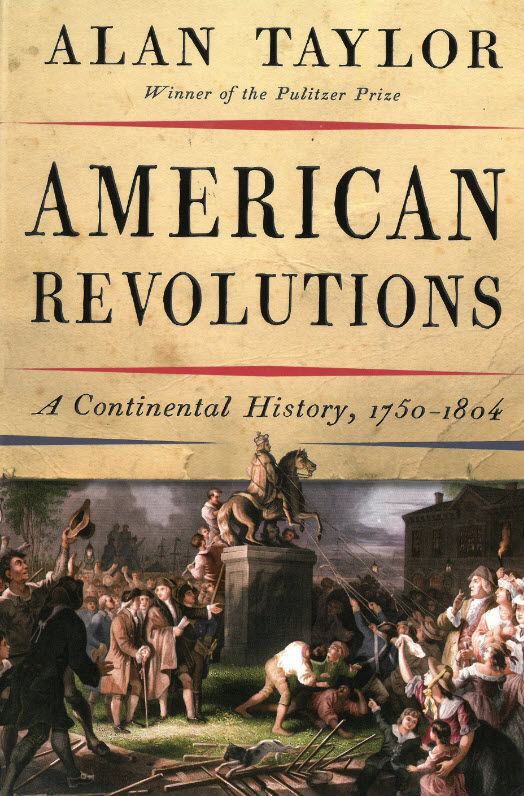Book review: ‘American Revolutions’
Published 1:00 am Sunday, April 23, 2017

- Book review: 'American Revolutions'
”American Revolutions: A Continental History, 1750-1804” by Alan Taylor. New York: W.W.Norton, 2016. 704 pages, $37.50 (hardbound).
Alan Taylor, who holds the prestigious Thomas Jefferson chair at the University of Virginia, is widely recognized as one of this country’s most thoughtful and imaginative practicing historians. Not only is Taylor the author of seven books on early American history, he is also the recipient of two Pulitzer prizes in history. It is not entirely out of the question that he will add a fourth Pulitzer to his credit with the publication of “American Revolutions.” Similar to his previous study on the War of 1812, Taylor treats the American Revolution as the first of this country’s two civil wars. Like its subsequent counterpart, Taylor views the U.S. revolutions as a war waged by American soldiers, British subjects, Irish rebels and Indian allies.
In both studies, Taylor adopts a continental approach. He incorporates into his analysis the developments not only within North American British possessions in the western hemisphere but also within their counterparts in the French and Spanish colonies in the Americas. This framework allows him to compare and contrast events in each of the three European empires. Consequently, Taylor views the contest for domination of the Americans from a broader and richer perspective, allowing him to present a more inclusive and more comprehensive understanding of these significant events which occurred between 1750 and 1804, the period when the United States doubled its holdings in North America.
Taylor treats the American revolutions not merely as military developments but also as social, economic, political and cultural phenomena. In fact, Taylor mentions military battles and campaigns only as sidebars within a richer and more comprehensive and humanizing study. Taylor also sprinkles his narrative with intriguing facts and stories of particular interest. For instance, the author describes in considerable detail the treatment accorded Loyalists or “traitors” during the Revolutionary War and after. In Virginia, for example, Patriots delighted in whipping “Tories” until they shouted “Liberty Forever” and pledged allegiance “to the new order.” For hanging a number of “Loyalists after quick, mock trials,” Col. Charles Lynch’s name was converted “into a verb.”
In conclusion, Taylor’s excellent summary of events throughout the “New World” is not only an interesting historical narrative, it is also, despite its length and broad coverage, a scholarly and interesting study. I highly recommend it for anyone interested in understanding this nation’s roots and early history in an all-encompassing, holistic perspective.
– Reviewed by Robert V. Haynes, professor emeritus, Western Kentucky University History Department.






